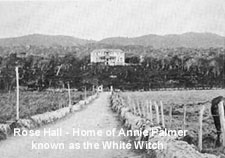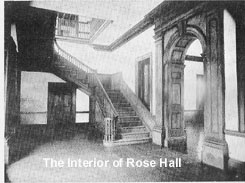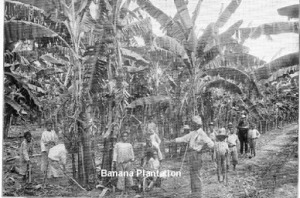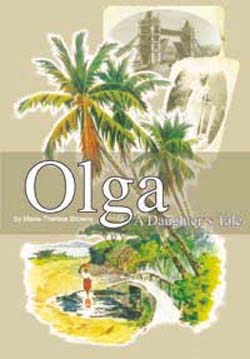<—Olga’s Diary Vivie, Sydney & the Den of Inequity—>
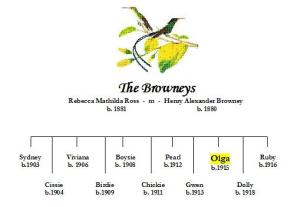
Dear Diary
When we were little, Mammie used to take in lodgers and we still have one, Mr Delgado who has one of the rooms downstairs. He is a salesman, from the Cockpit Country and a direct descendent of the Maroons, who, by the way, hate the British. Mr Delgado loves to tell stories, and always the same one, how years ago the Maroons defeated the British when they tried to recapture the slaves that the Spanish set free after the British had taken Jamaica from Spain. The slaves headed up the mountains and forests into the remote Cockpit Country area of Jamaica and set up communities there.
The British soldiers tried to re-capture them several times but the Maroons, led by a woman called Nanny, outsmarted them. Eventually a truce was called and the Maroons won the right to virtually govern themselves. And every year, Mr Delgado tells us how they celebrate the fact that they were the first black people in the West Indies to gain their freedom nearly 100 years before Emancipation.
Miss Wedderburn, who was my history teacher when I was at Alpha School, was very impressed the day I told the whole class the history of the Maroons – I didn’t tell her I’d heard the story so many times I could repeat it in my sleep and, no doubt, I’ll hear it again.
Viviana is my oldest sister but everyone calls her Vivie. Vivie’s my heroine because she is always prepared to speak up, usually against Sydney, for the “tots” which is the pet name the family use when they’re talking about Ruby, Dolly, Pearl and me.
At one time we had a lodger called Alfred Moncrieff, a coloured man from Clarendon. I didn’t like Mr Moncrieff one little bit and one day he told me to collect his dirty laundry from his room and give it to Cassie to wash. Well, I turned my back on him, tossed my head in the air and at the same time flicked the back of my skirt in a haughty manner (I saw Jean Harlow do this once in a film) and told him I wasn’t a servant.
That night, when Ruby and I were in bed asleep, Sydney came into our bedroom and dragged me out of bed and gave me a whipping. Mr Moncrieff had told him I had lifted my skirt right up and shown him my knickers. It was a lie.
When Vivie heard what had happened she tore into Sydney something terrible. She was fearless and told him that there was something unnatural about a brother giving his sister a whipping on the bottom and that he should be ashamed of himself.
“You’re too free with your hands on the tots” she told Sydney.
“How could you believe that nasty little man with his dirty little mind and not even ask Olga her side of the story before you dragged her out of bed in the middle of the night”.
She called him cruel, a bully and said “you’re just as bad as Moncrieff”.
I can tell you Sydney’s not used to being spoken to like that. As a matter of fact the whole family was very angry about what Sydney did to me but he’s taken over the role of head of the family now and that’s that. I don’t know whether Mammie ever said anything to Sydney about the whipping he gave me, but the next day she told Moncrieff to get out.
Another lodger was a salesman called Victor Condell, a coloured Jamaican who came from Canada. He used to sell tractors and other kinds of farm machinery. Well, Victor Condell lived with us for over a year and one day, out of the blue, he said he was returning to Canada at the end of the month. My sister, Chickie, was heart broken and cried for days. Eventually she stopped crying long enough to tell us that she and Victor had been courting and she’d fallen in love with him. It came as a big shock to me, I can tell you, I never suspected anything.
To stop Chickie crying, our cook, Aggie Burns, took her to see Annie Harvey, an Obeah woman, to get a love potion to secretly give to Victor to make him stay with her. Annie called it “come to me sauce” and it was in a little blue bottle which Chickie had to mix into Victor’s food, and then wait for the potion to work. Once it works, Annie told Chickie, you can then give Victor another potion called “stay at home sauce” and that keeps him from looking at other women.
Unfortunately, the second potion wasn’t needed because the first one didn’t work. Victor left. So, Aggie Burns, who has a big collection of voodoo dolls, then asked Chickie if she’d like to choose one and she could stick pins in it so Victor would get sick, but Chickie said no.
One day, long after Victor Condell had left, I heard screams coming from Chickie’s bedroom. Mammie told me Chickie was fine, not to worry and to stay right away from her room. But curiosity always got the better of me, so I went up to peek through the keyhole of her bedroom door. Before I could see anything, Sydney had come up behind me, grabbed me by the hair and dragged me to my bedroom and gave me a good whipping. “That’s for not doing what you were told” he said. A few days later Pearl, Ruby, Dolly and me were shown Maurice and Mammie told us that Chickie had a little baby boy.
“A gift from God” she said.
<—Olga’s Diary Vivie, Sydney & the Den of Inequity—>
If you enjoyed this post, please consider letting your friends know or leave a comment or subscribing to the feed to have future artices delivered to your feed reader.
